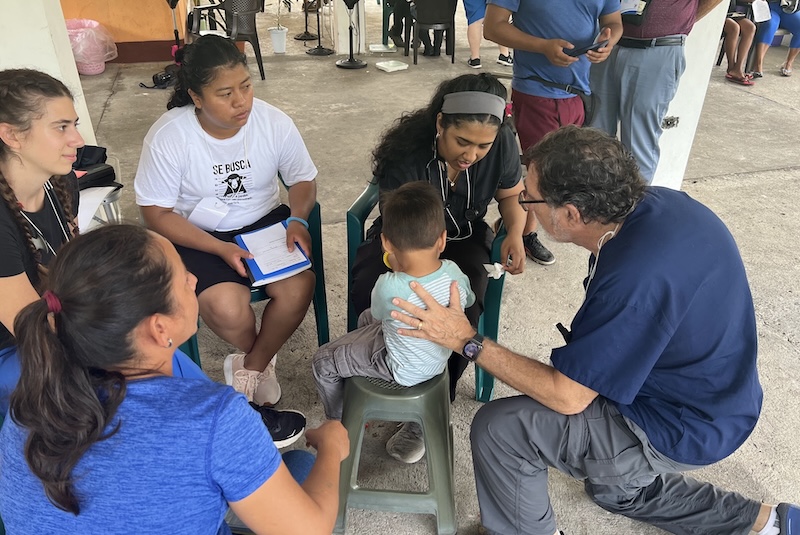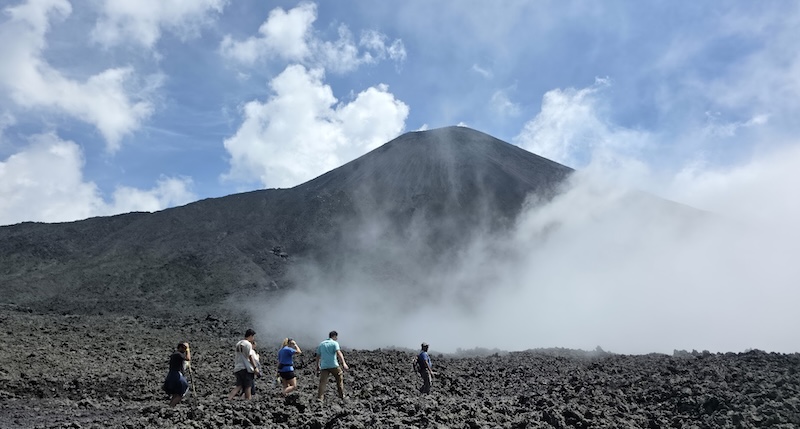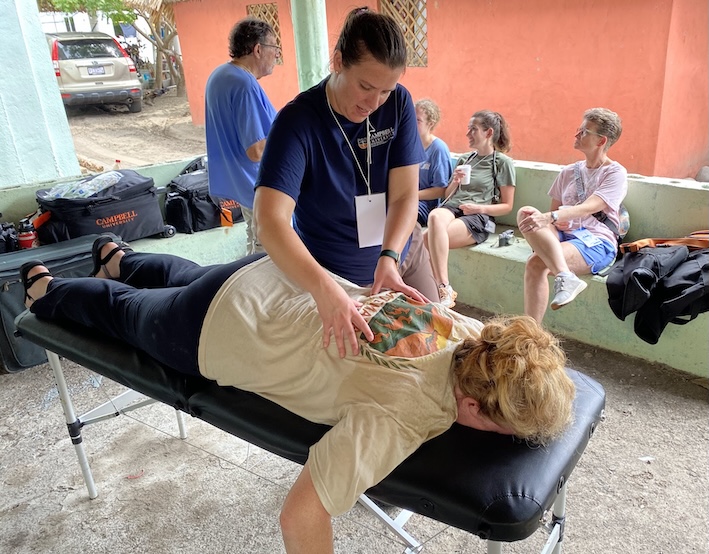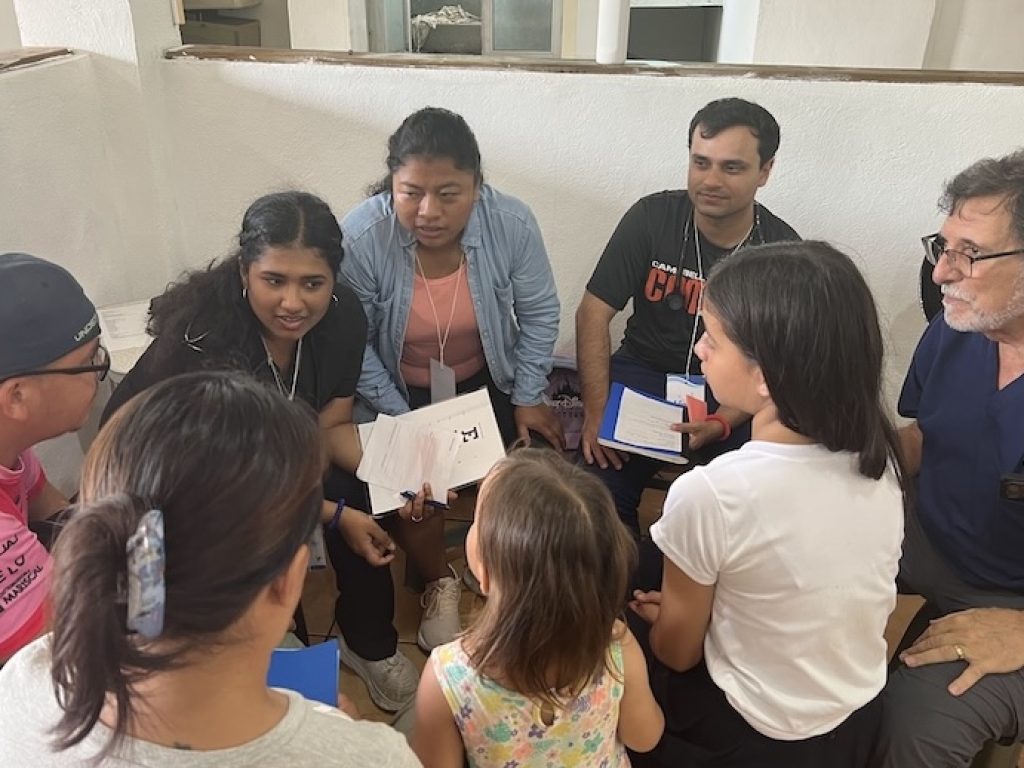Campbell medical students, a couple times each year, travel to places around the world. Places such as the Dominican Republic, Ghana in west Africa and, this fall, Monterrico, Guatemala.
Travel can be arduous and uncomfortable. Students then must navigate cultural and language barriers, even with the wonderful guides and translators.
The student doctors may change, but the mission is always the same.
Smiles prevail, regardless of the destination, the working conditions, the long hours or the weather.
The Campbell student doctors, faculty and staff care for people in whatever country or community they land, offering compassion, empathy, hope and lots of joy.
This was the first time students from the Jerry M. Wallace School of Osteopathic Medicine visited Monterrico, although med school students did visit the country last year. This time, too, they explored the country and its cities, places in Guatemala such as Buenos Aires and Hawaii. They hiked near the Pacaya volcano, part of the Central American Volcanic Arc.
A group of the students who served on the trip offered a show-and-tell-type presentation for faculty and staff at Campbell. Another team member, Elena Vargas, created a well-done video documenting the trip, which was played before the students talked about their experiences Oct 16.
The group of student presenters included med students Cassianne Kelly, Hannah Lee, Hannah Krueger, Andrew Aldi, Samantha Brehmer and Paul Farag. In all, 14 DO students visited Monterrico, as well as one student from the Pharmacy program.
Student doctors and Campbell physicians cared for some 350 patients in and around the coastal town. Treating people for hypertension, high blood sugar, vision problems, colds, flu, urinary tract and other respiratory infections. They saw a fetus on a mobile ultrasound and treated a patient with gallbladder stones.
The conditions in which they worked were, in a relative sense, more modern and less rudimentary than in past trips. Still, the bus rides were often long and arduous, the surroundings and food unfamiliar, the cultural and language differences sometimes frustrating and tedious.
For a couple of days the Campbell teams set up in a clinic once used by the University of California-Los Angeles. UCLA pulled out after the pandemic, leaving equipment and medicine to sit untouched.
No matter. Smiles prevailed.
Bringing hope, compassion and care does that.
Aldi talked about a team of physicians and student doctors treating a leg injury, the patient returning day after day. Student doctors holding her hands as another treated her leg. Another dabbing her forehead. Wiping away her tears.
Hannah Lee talked about a patient who could hear but couldn’t speak. A translator helped her to communicate. “She was really happy that someone could understand her. … obviously. So it was really nice,” Lee said.
“The translators were amazing.”
“I enjoyed working with patients, and working as a group, collaboratively,” Farag said. “It was kind of great being there, working with everybody and being a team and helping the patients. Everybody was just there to help. It was nice to see everybody smiling, everybody helping.”
Listening to patients and praying with them. Offering that love, that hope.
“The most beautiful thing for me was the lasting impact that it had on me, with all the relationships that I built, but also the experience that I got to have,” Krueger said.
Brehmer talked about a patient who had a list of issues. The attending physicians told her to take only two medical complaints, so that every patient will have a chance to see a doctor.
“But I felt bad, so I kept asking more (questions), and by the end … she broke down crying, so grateful that we were willing to listen to her. It was really sweet to see,” Brehmer said.
For some, the trip enhanced their love for medicine, of caring for people beyond treatment, therapy or medication.
“It was so fun to see that side of medicine, loving people so much more than just caring for them physically,” Krueger said. “I think that was definitely my favorite part.”




